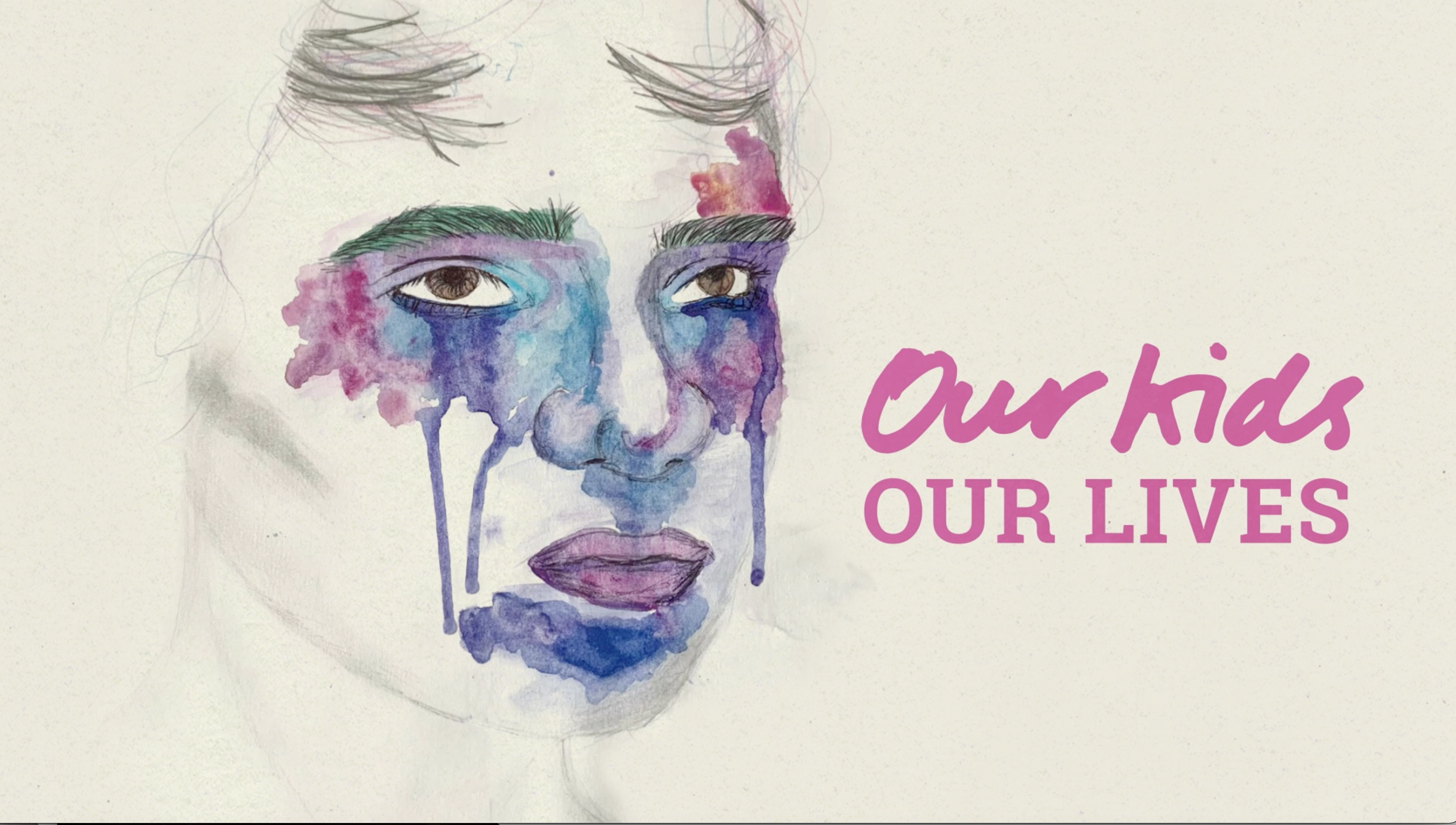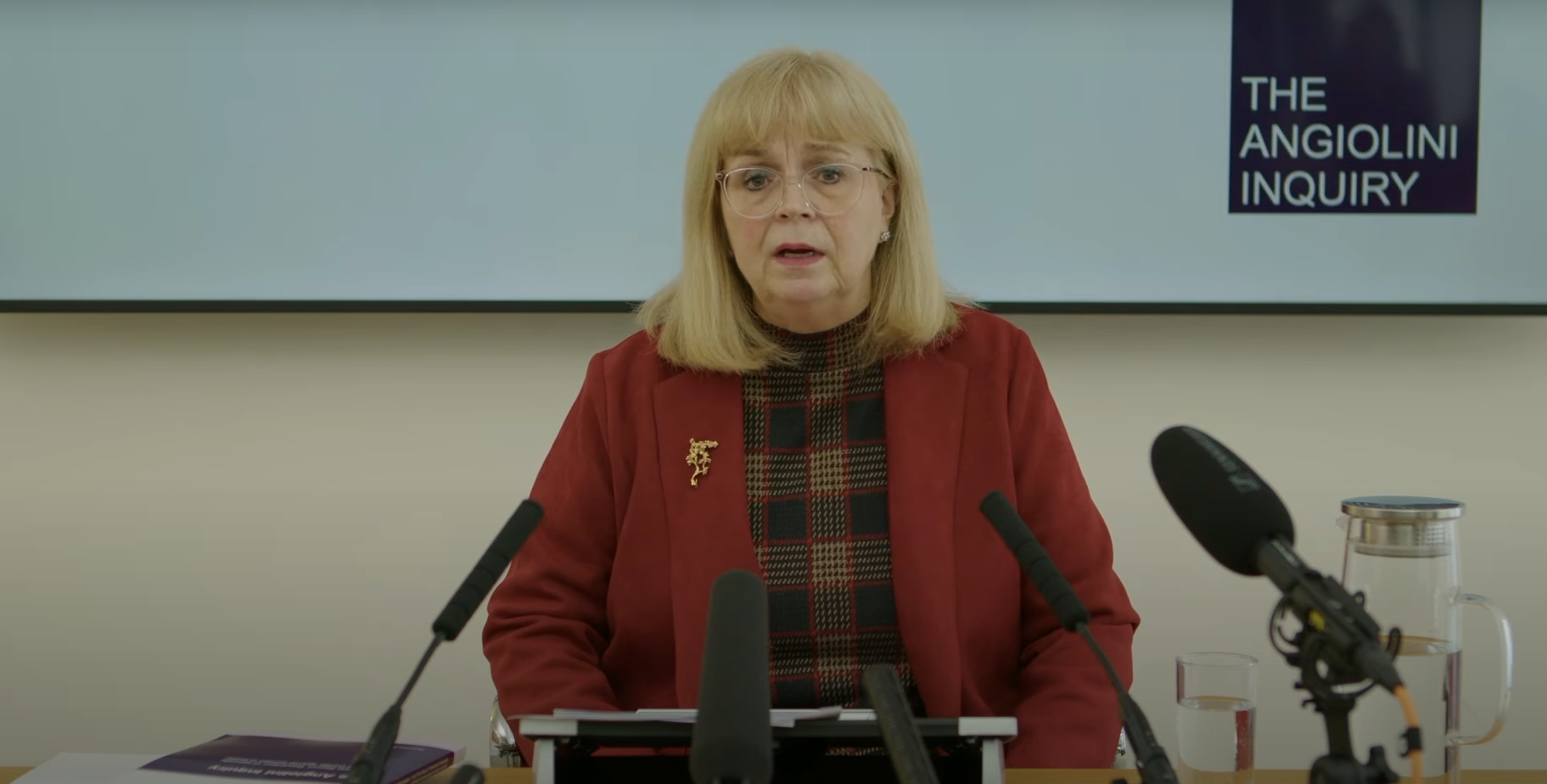Lora Krasteva has suffered from eczema since she was five-years-old, which often left her skin itchy, red and irritated.
From being a little girl she was prescribed various creams from her family doctor and has endured a lifetime of treatments.
“Using steroid creams and all kinds of ointments has been part of my routine for as far as I can remember,” says Lora. “It’s been constant throughout my life.”
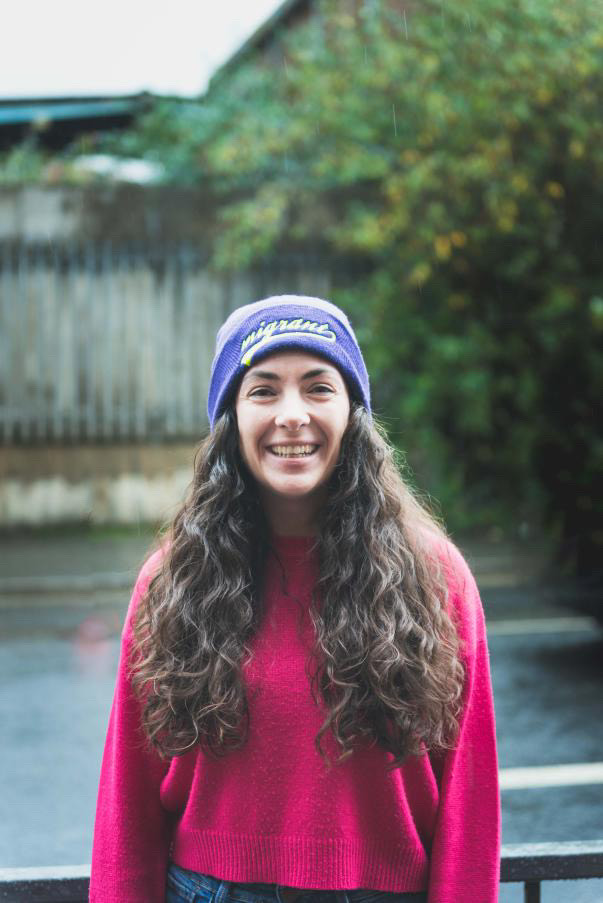
It was only in November 2020, when Lora was 31 and she moved to Sheffield that she had a short period of respite from the condition.
“The water is really good in the city so it gave me a break. It allowed me to stop using the creams and everything was going really well.”
But her relief was short-lived and a month later Lora suffered an eczema flare-up. “In hindsight what happened was my skin got addicted to the steroids and I was in perpetual cycles,” she says.
Fed up constantly using steroid cream, Lora began researching other options. She discovered topical steroid withdrawal (TSW) – a severe reaction to the long-term use of topical corticosteroids such as hydrocortisone creams which are used to treat skin conditions including eczema psoriasis, and atopic dermatitis, among others.
The very creams that were supposed to be helping sufferers, including Lora, were causing further skin issues. Four years ago Lora decided to stop using steroid creams altogether.
“It was a bit on a whim,” she says. “It got much worse and I thought ‘I’ll hold my nerve and see what happens’. I did it and it’s the best thing I have ever done. I was a prisoner of a thing I didn’t even know I was in a cycle with.”
Chief executive of National Eczema Society, Andrew Proctor, said: “As with other treatments, people can experience side-effects using topical steroids, including after they stop using these widely prescribed medicines.
“Topical steroid withdrawal is complex and research into the causes, symptoms and treatments is limited.”
Last year, the National Eczema Society successfully campaigned for the Medicines and Healthcare products Regulatory Agency (MHRA) to introduce strength labelling on steroid creams and ointments. This is being rolled-out now and shows whether the medicine contains a mild, moderate, strong or very strong steroid.
Mr Proctor said: “This change will help the millions of people with eczema who rely on topical steroids to use these medicines safely and effectively.”
Although Lora says stopping using the creams was the best thing she has ever done, she admits initially it was difficult, describing the period as “three months of hell”.
“I stopped in a moment where my skin was looking really good, so I was like ‘this is great I don’t need them anymore’, but the rebound from that was awful,” Lora says.
“It was ten times worse. My eyes were puffy, I was disfigured. I couldn’t sleep, my skin was peeling, you shed everywhere, it’s embarrassing, you have to wear loose clothing.
“It helped that it was the pandemic because I was mainly at home. I was afraid to go and meet people as I was in a city where I hadn’t met people before and had to explain to them that this isn’t how I look.”
Lora received support from her partner as well as a peer learning group, Sheffield Pioneers. “That group of people met me at my worst,” she says. “Now we’re friends for life.”
“There are some little wins today that may feel a bit futile to some people like I’m using makeup again for the first time in six years and it feels like such a great thing to be able to do because before it was not possible.”
“It feels great not to be spending so much energy thinking about skin.”
Another eczema sufferer, Alicia Sewell, from Sheffield, experienced a flare up in her condition after she moved into a house plagued with mould. She needed a course of steroids to treat her skin.
“But no matter how strong the medication was, there was no improvement in my skin,” Alicia says. Her skin was so inflamed it was bright red and oozing, which also shed, became thin, caused nerve pain and swelling.
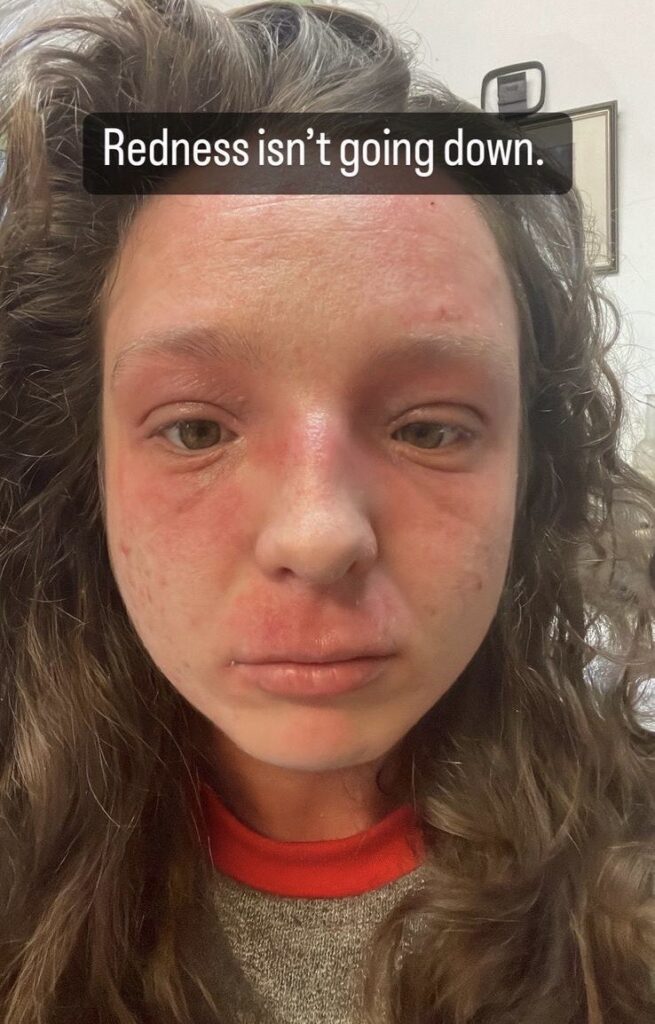
“I covered all of the mirrors in my house because I didn’t want to look at myself anymore,” says Alicia, who also suffered from intense itching, which she described as “a bone deep itch”.
“It was an itch that was so unbelievably painful. It was something that was impossible to ignore,” she says. “I’d never felt such an intense need to harm myself through scratching.”
However, one of the most prolific symptoms for Alicia was insomnia. She would go for days without sleep and then eventually “crash out” for up to ten hours.
Alicia started an Instagram account to try and find advice for her skin. “I had no idea what was happening to my body.”
It was then Alicia discovered the International Topical Steroid Awareness Network (ITSAN), which formed in 2012 to raise awareness on TSW.
Topical steroid withdrawal is widely discussed on social media under the hashtag ‘#TSW’, which has received over 1.1 billion views on TikTok.
Mr Proctor explained the symptoms of TSW ‘can be extremely painful and distressing’.
“The eczema community wants to see more research and much more awareness among healthcare professionals,” he said. “One of the challenges is the symptoms people can experience when stopping using topical steroids can appear similar to those of untreated or poorly controlled eczema.
“Without clear guidance on TSW from healthcare professionals, people are turning elsewhere for support and information.”
In 2024, Briana Banos, 36, from Edinburgh, ran the Sheffield half marathon with fellow ITSAN advocate Amy Aston to raise money for the network.

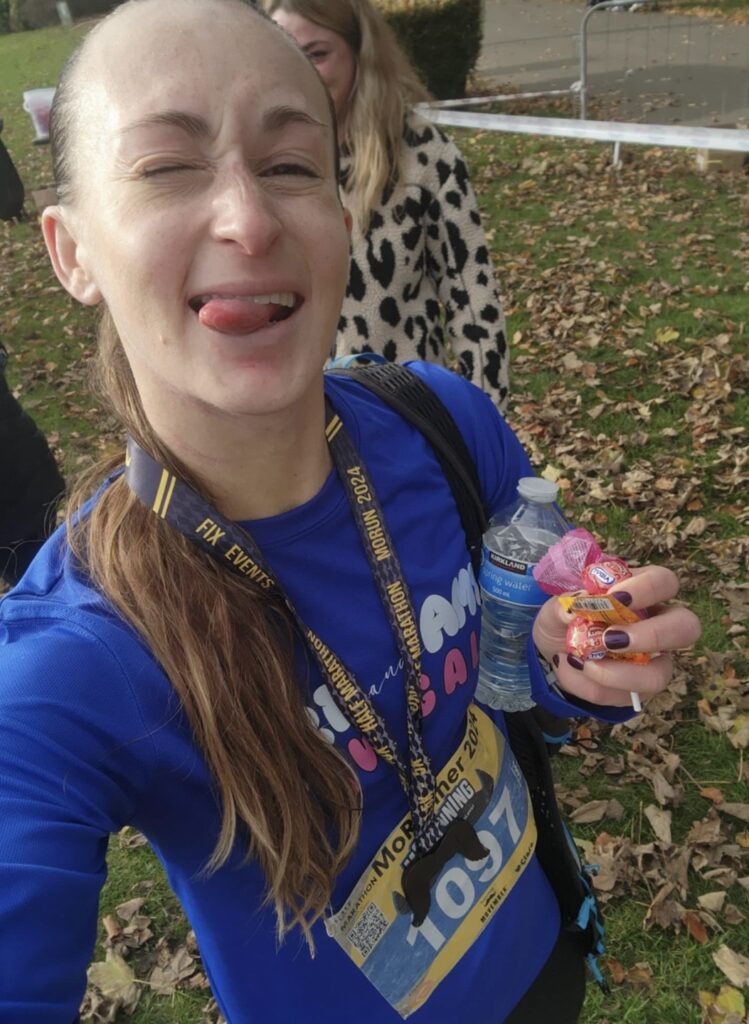
“It was a really wonderful experience to do my first half marathon in order to support and raise money for ITSAN,” she says.
Briana first started suffering from TSW at the age of 22 when she began working on a cruise ship. “It is honestly one of the most horrible things to go through and I would not wish it on an enemy.”
Briana, who last applied steroids in 2015, has produced two documentaries on TSW called ‘Preventable’ and ‘Still Preventable’.
“I knew what questions to ask and I have a balanced demeanour on the subject. I feel really privileged that I was in a place where I had put myself to gain trust in both the patient community and the doctor community.”
A joint statement with the British Association of Dermatologists and the National Eczema Society states: “We would encourage healthcare professionals to be supportive of patients living with symptoms of TSW. Trying to find common ground and agree on practical plans for treatment will help patients who have concerns about the use of topical steroids. It is important to offer alternatives to topical steroids for people who would otherwise stop using them.”
“The whole medical profession needs to be educated on what the signs and symptoms are”, says Alicia. “I think a large percentage of people who actually get to the point of needing a dermatologist are probably already going through TSW.”
“The skin is the biggest organ of the body and yet we don’t treat it with the same reverence as the brain or the heart”, says Lora.
When it comes to TSW sufferers sharing their experiences, Briana says: “It comes from a very genuine place of just wanting to share our story and the grief and the loss that we feel that we hope never happens to anybody else.”



